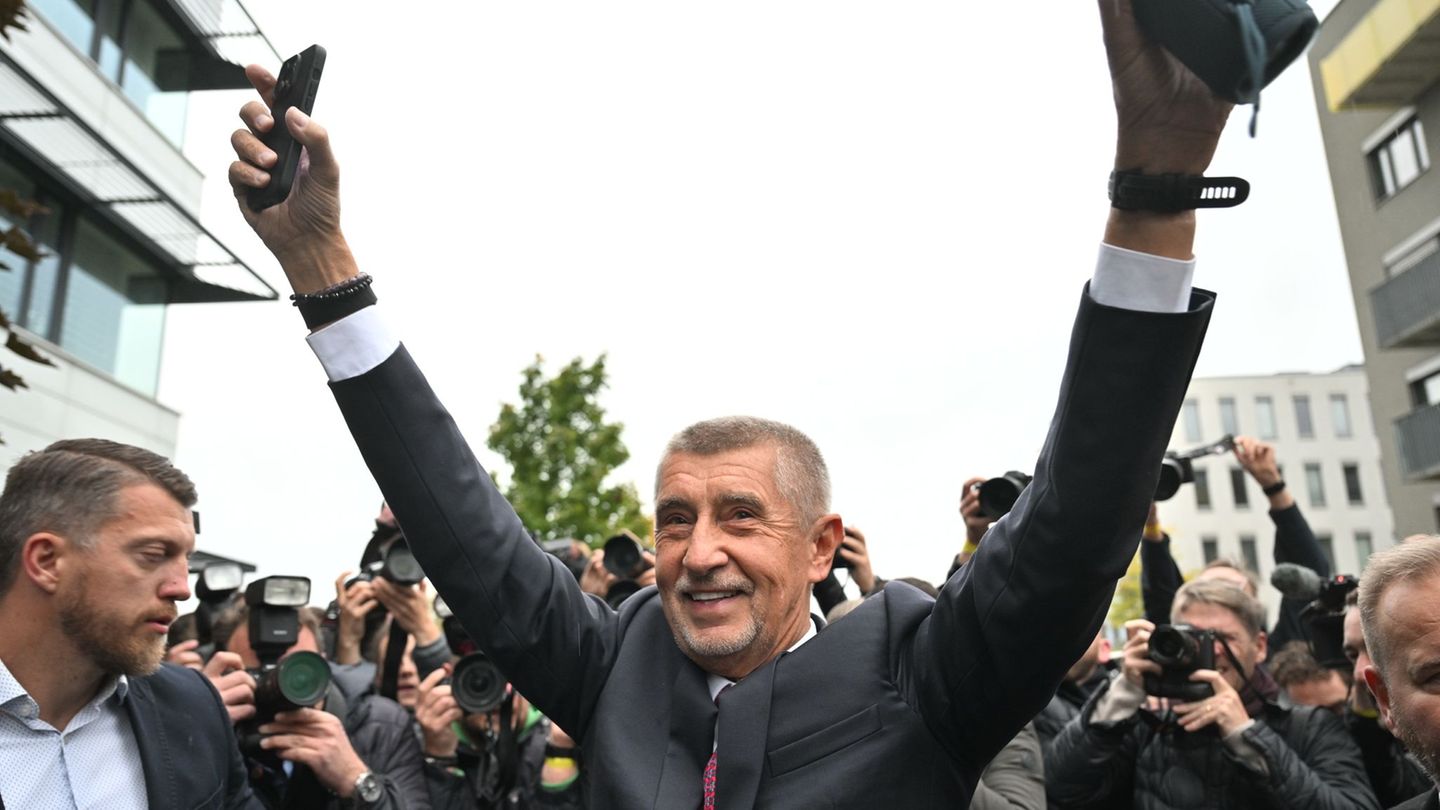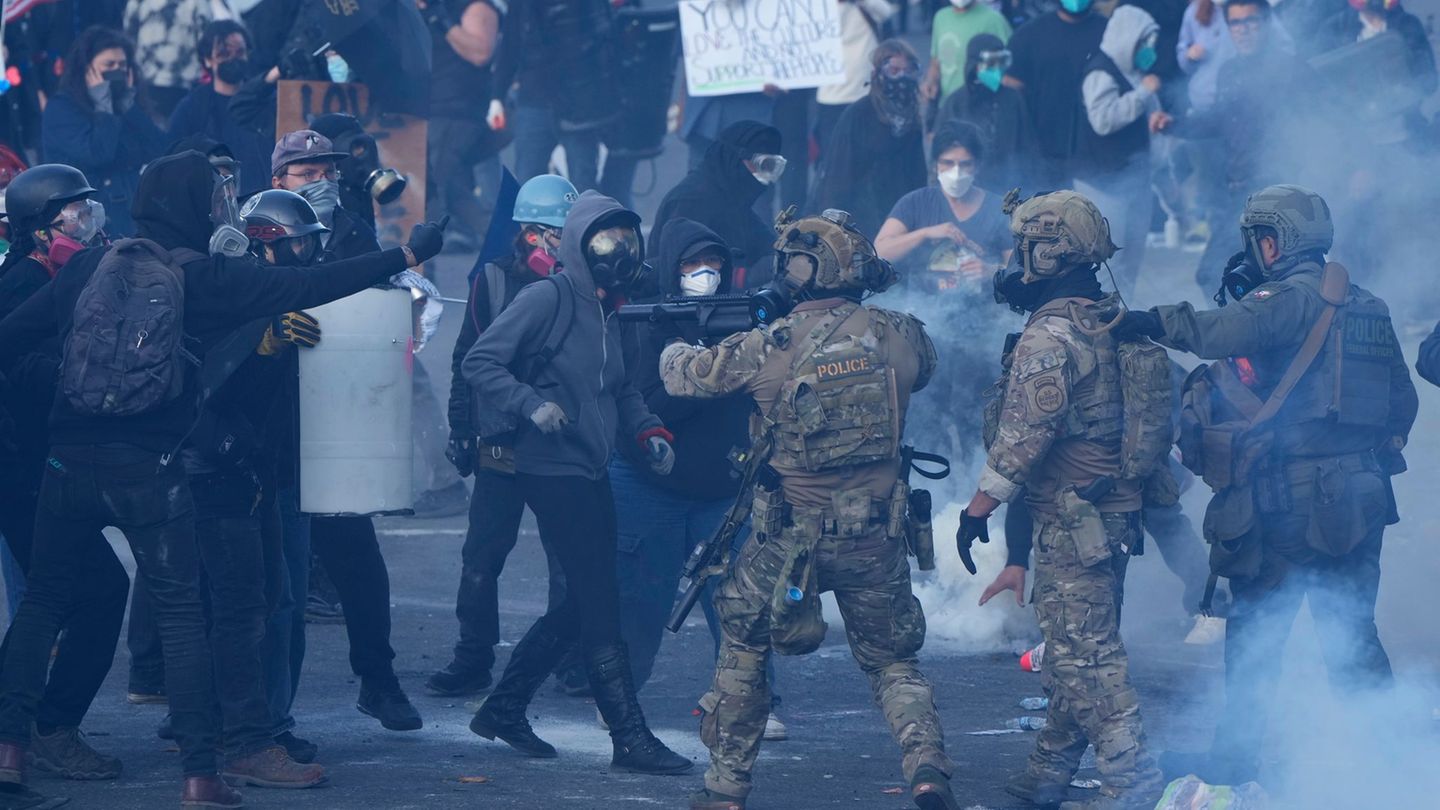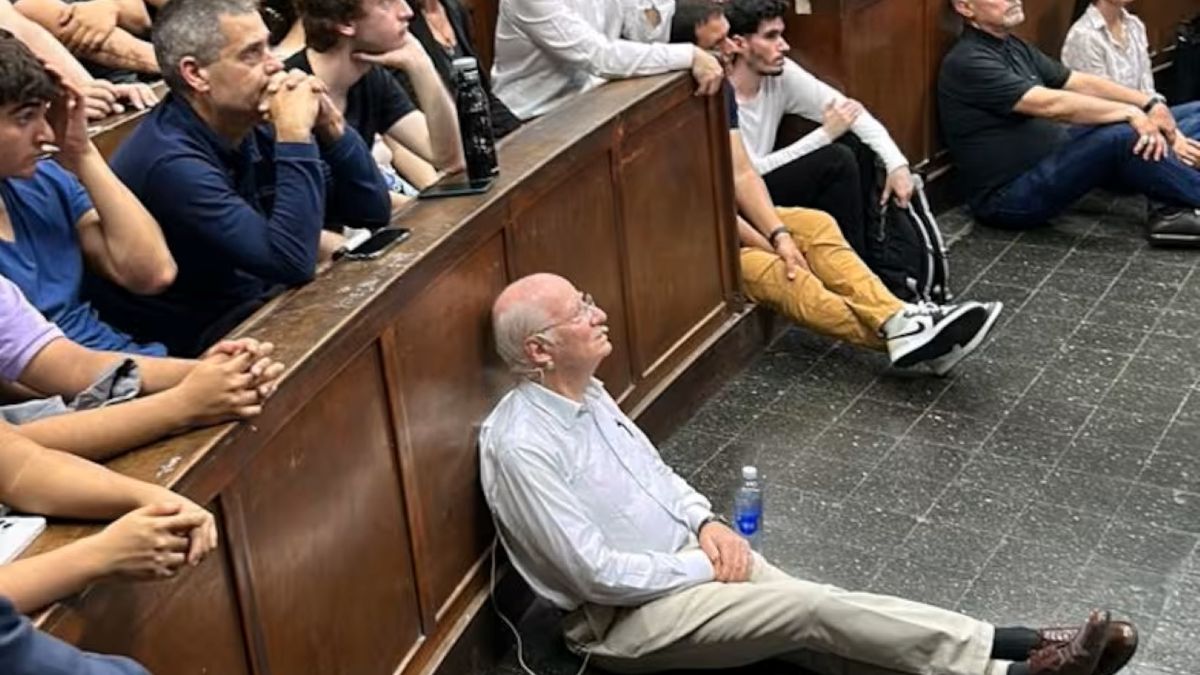Communication in times of crisis – a challenge. Chancellor Olaf Scholz also experienced this at the German Catholic Congress in Erfurt.
Federal Chancellor Olaf Scholz was momentarily enthusiastic. “I like doing that, by the way – the thing I like most is actually talking to citizens,” said the Chancellor at the Catholic Day. The topic in the Erfurt Theater was serious: “Strengthening the community, shaping society – our responsibility for democracy.” It was about the major crises in a time of mistrust, hatred and agitation. And Scholz had already had a complicated moment that morning.
After about ten minutes of the panel discussion, activists from the protest group Last Generation began shouting slogans from the audience of about 800 people. “Democracy needs honesty” and “Do you care about my future?” – that’s how it started. Scholz remained stoic, trying to be didactic: “You have to keep your mouth shut for a minute,” he said on stage. “Then I’ll answer the question.” It didn’t help.
The activists continued to shout, but it was hard to understand anything. They unfurled a banner from the Last Generation and started chanting: “Where, where, where is the climate chancellor?” Scholz could no longer get through. The moderator interrupted the event for three minutes. The chancellor and his fellow panelists were silent. Then the audience began to sing, first in one corner, then throughout the hall: “Lord, give us your peace.” And it actually became more peaceful. The organizers later explained that they had tried to talk to the six activists, but dialogue was not possible. That’s why they had had to lead them out.
“Everyone must be able to express their opinion”
Communication in these times, listening to each other, seeking exchange – the scene at the Catholic Day perhaps shows best how difficult all of this has become. Scholz himself said at the beginning, when asked about the shouting young people on Sylt, about the threat from the right, about the intimidation of politicians: “We have to defend the public space so that everyone can express their opinion anywhere in Germany,” said the Chancellor. In this sense, the climate activists were also heard for a moment. Whether their message got through is another question.
The Chancellor is also concerned about whether anyone can penetrate beyond their own bubble, he said. At one point in the discussion he was asked whether the traffic light coalition was also making mistakes in communication. Scholz answered with a simple: “Well.”
Scholz was again asked in Erfurt about the most pressing issues, such as a ban on the AfD, the fight against climate change, and the use of German weapons in the war in Ukraine. He gave detailed answers, outlining the bigger picture: supporting Ukraine against Russian aggression is about prudence. When it comes to climate protection, everyone has to be involved. Germany, with its incredible capabilities, has reason to be optimistic. There was not much new to learn in the Erfurt theater. But that did not dampen the audience’s goodwill. Perhaps it is about at least trying to communicate, again and again.
Habeck wins with an apology
Vice Chancellor Robert Habeck, who was sitting on another podium in the Thuringian capital at the same time, also had this experience. The topic: How the social-ecological transformation can be accelerated. The Green politician was received with loud applause in the packed Alte Oper. And then immediately collected further plus points with the guests: He apologized that it was apparently his first time attending a Catholic conference. This was a “failure of the past,” said the Minister of Economic Affairs, who once described himself as a “secular Christian” in an interview.
Habeck also addressed the big questions, the fight against climate change, social balance and justice. And it was about the big picture: Habeck emphasized what he saw as the special role of the churches in giving hope that it is possible to build a better world. He acknowledged the contribution of Catholic influences to the Basic Law. “What holds the republic together at its core, namely the model of the social market economy, would not have been conceivable without Catholic social teaching,” said the Vice Chancellor.
Source: Stern
I have been working in the news industry for over 6 years, first as a reporter and now as an editor. I have covered politics extensively, and my work has appeared in major newspapers and online news outlets around the world. In addition to my writing, I also contribute regularly to 24 Hours World.




